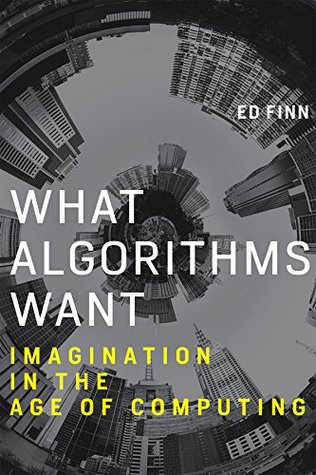More on this book
Kindle Notes & Highlights
by
Ed Finn
Read between
March 12 - March 17, 2018
algorithms have always embodied fragments of ourselves: our memories, our structures of knowledge and belief, our ethical and philosophical foundations. They are mirrors for human intention and progress, reflecting back the explicit and tacit knowledge that we embed in them. At the same time they provide the essential ingredient of mystery, operating according to the logics of the database, complexity, and algorithmic iteration, calculating choices in ways that are fundamentally alien to human understanding.
Researchers have demonstrated that using Google changes our memory practices, a fact anyone over thirty can prove: just ask yourself how many phone numbers you remember now as opposed to before you owned your first cell phone.
Through brain plasticity and changing social norms, we are adapting ourselves to become more knowable for algorithmic machines.
Indeed, we spend so much time worrying about the rise of a renegade independent artificial intelligence that we rarely pause to consider the many ways in which we are already collaborating with autonomous systems of varied intelligence.
The gap between theory and implementation, between abstraction and reality, is a critical point of human engagement. It represents a tremendous opportunity for humanists to take the field as our societal pendulum swings ever farther into the camp of computationalism.
As a mode of scholarly inquiry, experimental humanities embeds critique in process, using the innate collaborative potential of algorithmic machines (both computational and otherwise) to make new forms of collective debate, insight, and understanding possible.
There is great potential for new forms of critical work that use computational scaffolding to extend the space of human cognition.
The humanities has long grappled with the story that started this book: the mythic power of language, the incantatory magic of words and codes. We desperately need more readers, more critics, to interpret the algorithms that now define the channels and horizons of our collective imaginations.


